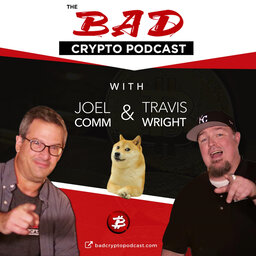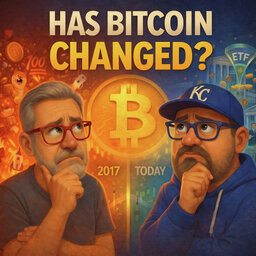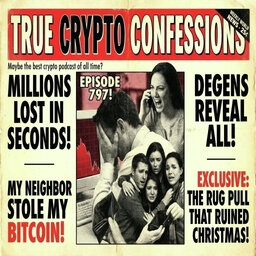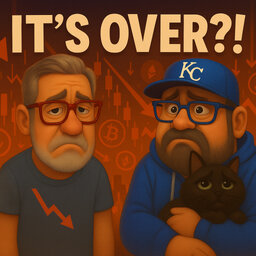Learning about Zero Knowledge Proofs
A young man walks into a bar and says “gimme a vodka tonic”. Unsure of the man’s age, the bartender must ask to see his identification in order to prove he is old enough to drink.
What if the bartender knew from the blockchain that the guy was old enough without even asking for an ID? He would be accepting proof with no knowledge of actually having seen the proof. That’s zero knowledge proof… or ZKP.
Today on the show we welcome Dor Garbash of the Mina Foundation to discuss ZKPs and why they are essential to building a web3 future with privacy and scalability in mind.
By the time we are done, you will have proof that you’ve got some knowledge of zero knowledge proof on episode #668 of The Bad Crypto Podcast.
Full Show Notes at: http://badco.in/
SUBSCRIBE, RATE, & REVIEW:
Apple Podcast: http://badco.in/itunes
Google Podcasts: http://badco.in/google
Spotify: http://badco.in/spotify
FOLLOW US ON SOCIAL MEDIA:
Twitter: @badcryptopod - @joelcomm - @teedubya
Facebook: /BadCrypto - /JoelComm - /teedubyaw
Facebook Mastermind Group: /BadCrypto
LinkedIn: /in/joelcomm - /in/teedubya
Instagram: @BadCryptoPodcast
Email: badcryptopodcast[at]gmail[dot]com
Phone: SEVEN-OH-8-88FIVE- 90THIRTY
BE A FEATURED GUEST: http://badco.in/apply
DISCLAIMER:
Do your own due diligence and research. Joel Comm and Travis Wright are NOT FINANCIAL ADVISORS. We are sharing our journey with you as we learn more about this crazy little thing called cryptocurrency. We make NO RECOMMENDATIONS. Don't take anything we say as gospel. Do not come to our homes with pitchforks because you lost money by listening to us.
We only share with you what we are learning and what we are investing it. We will never "pump or dump" any cryptocurrencies. Take what we say with a grain of salt. You must research this stuff on your own! Just know that we will always strive for RADICAL TRANSPARENCY with any show associations.
 The Bad Crypto Podcast
The Bad Crypto Podcast


